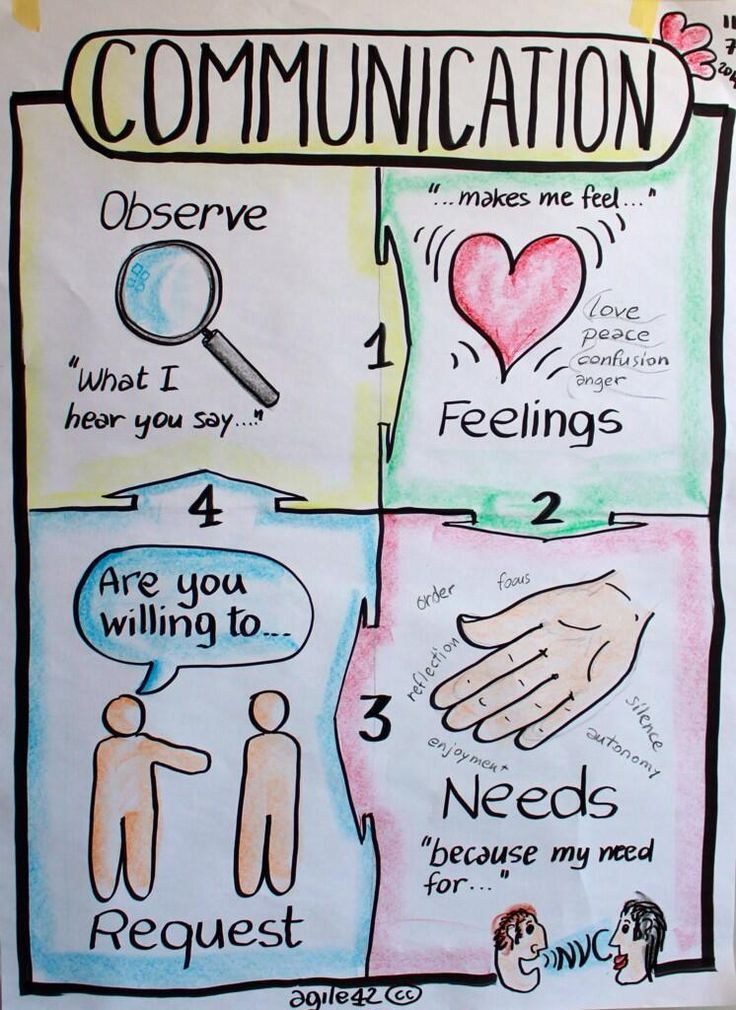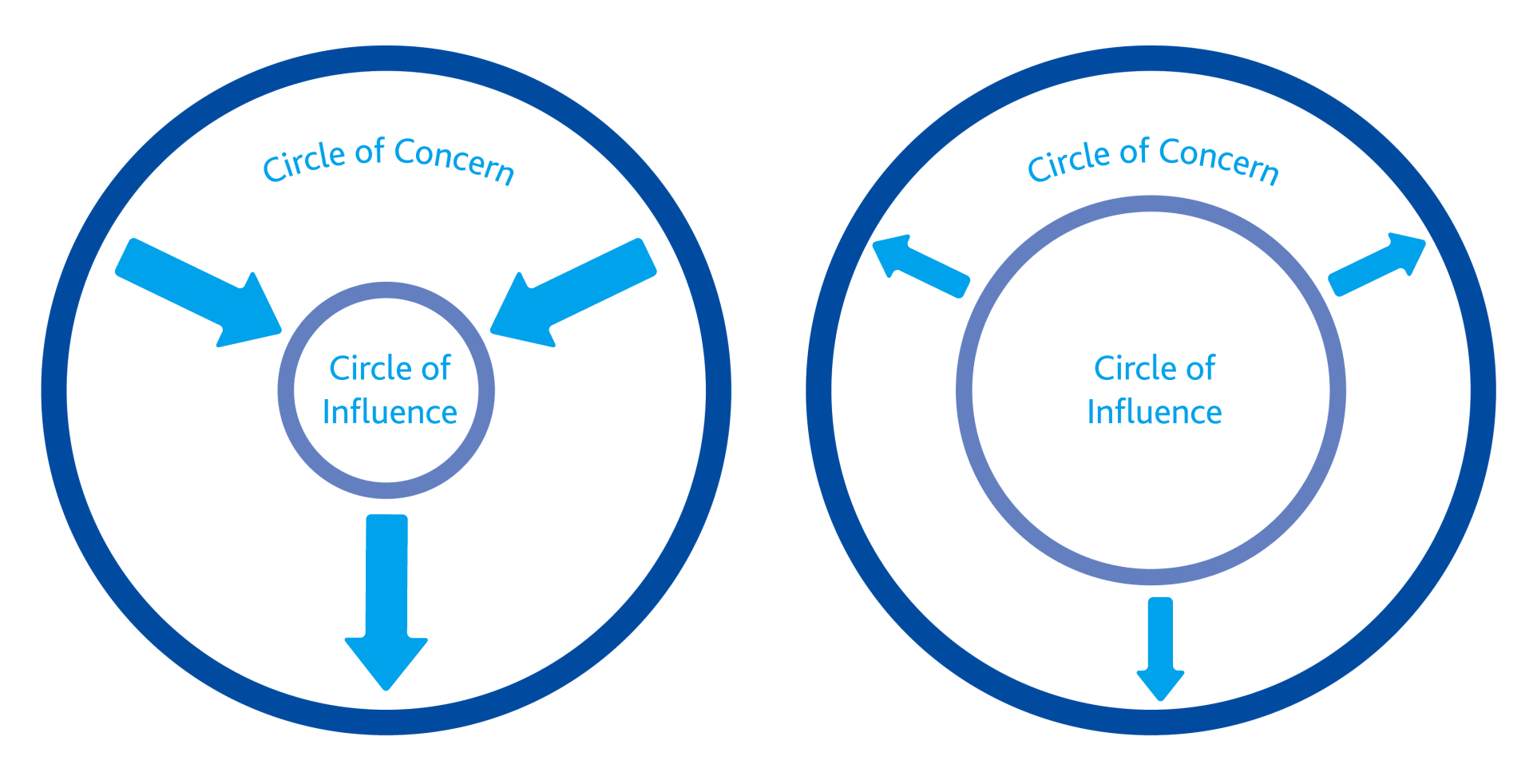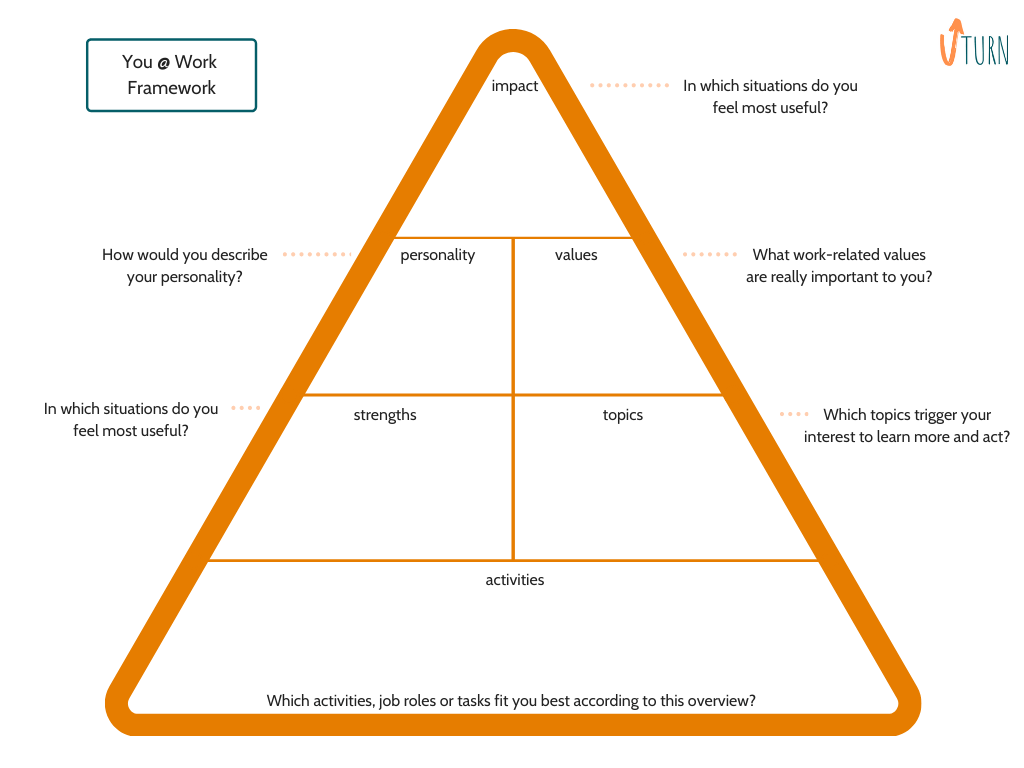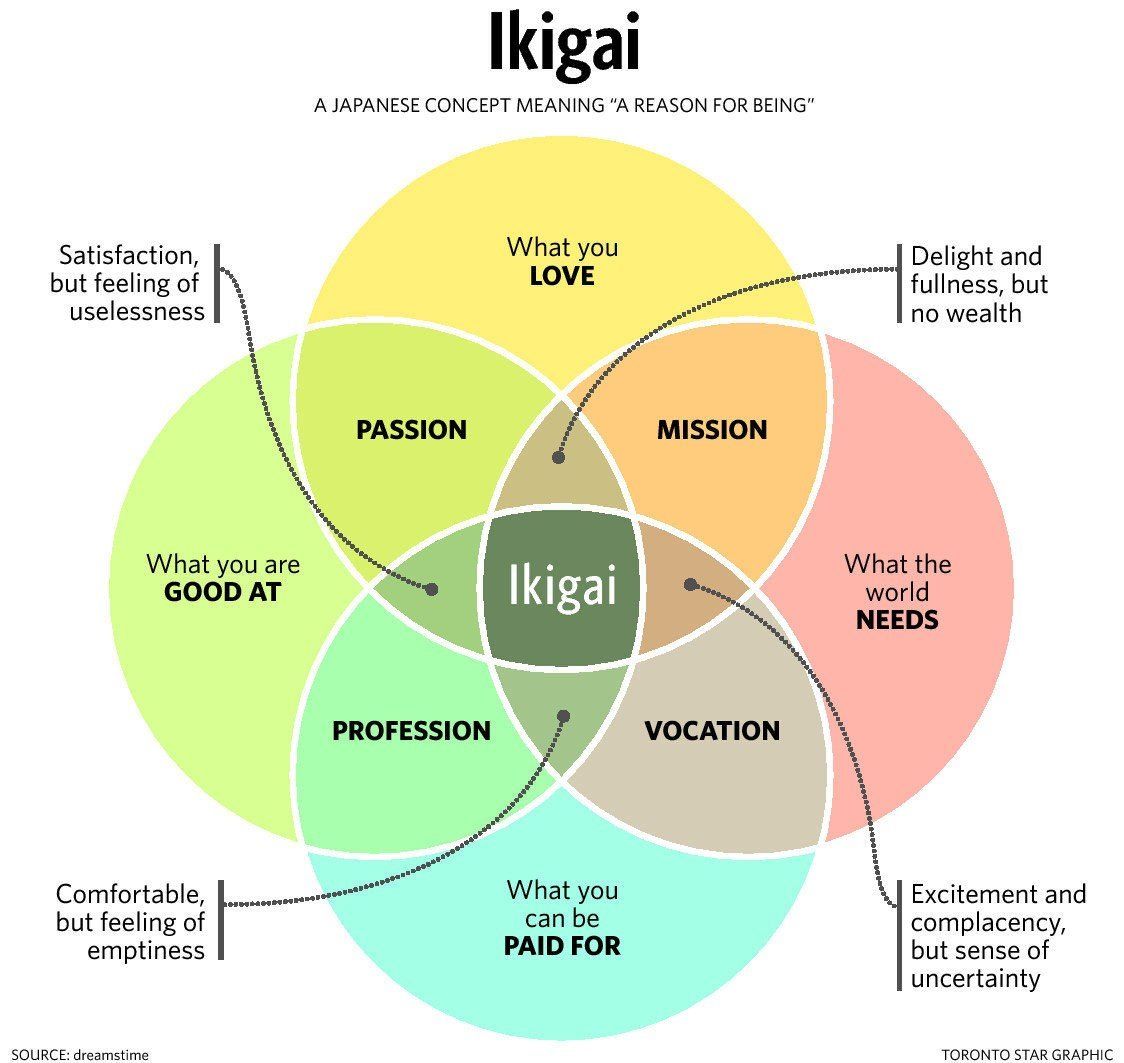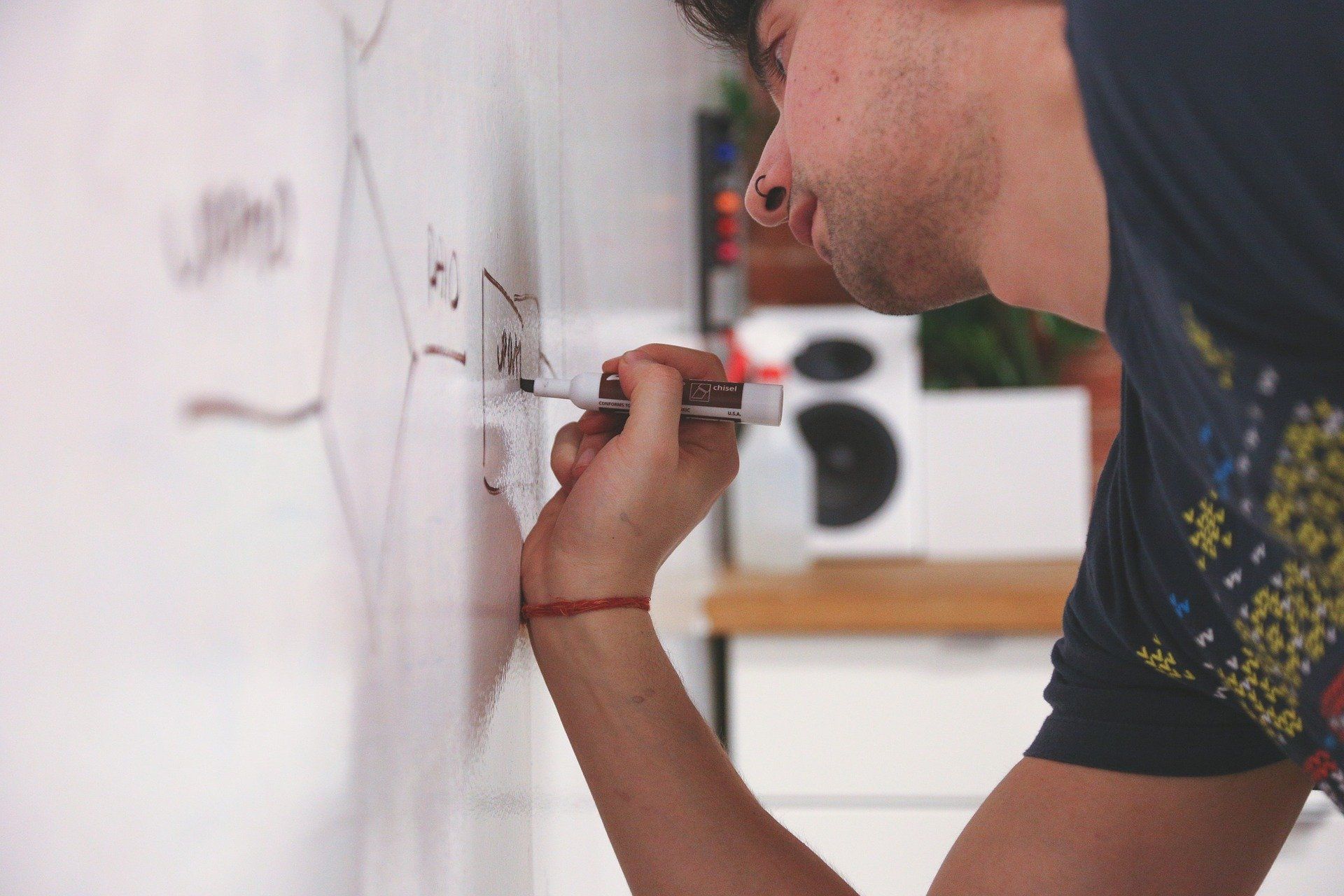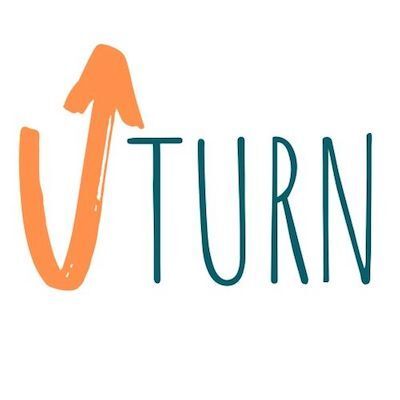stop trying to change things
Let's say I want to change the way we register complaints from clients at work because I feel we are not offering the best services and we aren't aware of and not processing how our clients are perceiving our services. I address this to my teamlead and he says he will take it on with the quality team. After a couple of weeks I don't hear anything, and this isn't the first time. What do I do?
Think about a personal situation you are currently in and you want to change things. You can map the people that are connected to the problem or situation you want to influence.
- The people you place inside the circle of influence are the people you are directly connected with. You know them or you can reach out to them to talk about the situation. This can be in a formal way, linked to protocols, workflows or hierarchic relationships, or informally because you simply know some of the colleagues related to this situation you are in.
- The people you place inside the circle of concern are the people that are far from you, you cannot reach them formally nor informally and they have influence over your situation. These are the people often have a certain power or position over you, that can decide over your situation for the better or worse.
If I use the earlier example, the circles could be filled in in this way:
What to do next?
Now you have an overview you can do a couple of things:
- try to change the situation by directly reaching out to people in your circle of influence and ask them to act or decide something that will alter the situation to your benefit. For example: I can email the Quality team directly using their public email box for ideas & suggestions.
- enlarge your circle of influence and ask the people in your circle of influence to reach out to the people in the circle of concern (because they might know them peronally or formally) and make a request on your behalf. For example: I can ask the colleague I know from the Quality team (I do sports with) to address my situation in their team meeting and see if they can do something about it. I could also ask my team lead to get in touch with the team lead of the Quality team, or even ask if he can introduce me to him.
- enlarge your circle of influence even more by reaching out directly to the people in your circle of concern. For example: I can reach out to the department manager because I know her face or have her email and therefore I can contact her directly. Doing this is often limited to what is socially accepted or the amount of courage you feel it might require.
- decide you cannot influence your situation because you don't have enough or the right people in power within your circle of influence. This can sometimes be a very wise decision; to renounce further persistance or determined mindset and hence avoid any form of burnout that might happen to you. Pick your battles.
If all of this doesn't work out well for you, see if you made the right choice on how to deal with your situation using the 4 Steps to Deal with (Stressful) Situations tool. Or send us a message and we can see if we can help you out.
Free Tools

